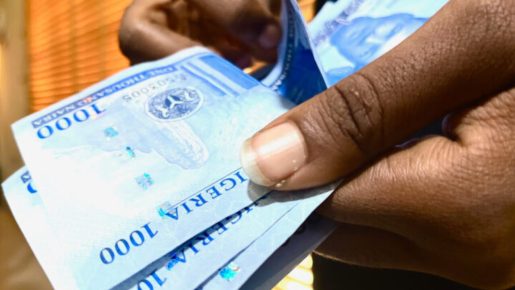The Nigerian Naira plummeted to an unprecedented low, closing at N1,099.05 per dollar in the official market. This marks a significant depreciation of 23.29% from its previous closing rate, casting worries just weeks before the Christmas holiday.
This milestone signifies the first time the Naira has breached the N1,000/$ threshold, raising alarms about its potential impact on the nation’s economy. Despite recent efforts by the Central Bank of Nigeria (CBN) to stabilize the foreign exchange market, the Naira’s decline persists, causing apprehension about its repercussions during the festive season, known for heightened consumer spending and dependence on imported goods.
The implications extend beyond individual consumers to businesses, both large and small, anticipating increases in production costs and challenges in maintaining profitability. The currency’s decline is expected to exacerbate existing inflationary pressures, putting further strain on household budgets, especially for those reliant on imported goods.
At the close of business, the Naira suffered a 23.29% decline, closing at N1,099.05 to a dollar, as reported by the Nigerian Autonomous Foreign Exchange Market (NAFEM).
Parallelly, the unofficial forex market saw a marginal depreciation of 0.59%, with rates quoted at N1,180/$1. Peer-to-peer traders quoted around N1,193.56/$1.
In response to foreign exchange scarcity, the CBN extended the timeline for issuing letters of credit from 24 hours to five working days. The recently approved 2023 service charter indicates a shift from the previous 24-hour timeline for the issuance and management of letters of credit.
The CBN also extended the timeline for the registration of Form M and NXP from 24 hours to two working days. These changes, introduced to combat forex challenges, come in the wake of the CBN’s decision to unify all segments of the forex market in June 2023, consolidating them into a single official window.
However, the unification appears to have unintended consequences, contributing to market instability. The Naira lost nearly a fifth of its value, trading at N951.2/$ on the official Investor and Exporter forex window, impacting local and international trade.
Financial experts have called on the CBN to de-dollarize the economy by declaring any local transactions in US dollars illegal. Dr. Biodun Adedipe of B. Adedipe Associates Limited suggests transparency in dealing with participating banks and advocates for a shift to Naira transactions for the sale of crude oil to local refineries. Additionally, he emphasizes engaging with bank CEOs for market reforms and recognizing the challenges of unified exchange rates in a structurally defective and weak economy.











